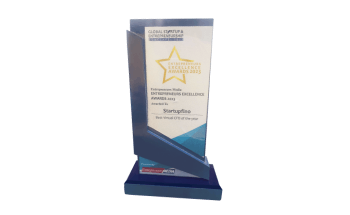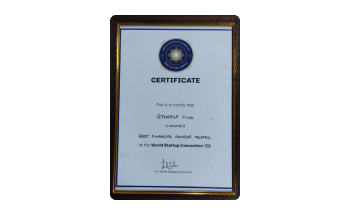Trademark Assignment serves as an official way for a trademark owner to transfer their ownership rights to another person. It's a written agreement allowing the current owner to pass on a registered word, phrase, symbol or design to a new owner. This happens when the initial owner decides to transfer their rights and interests in the trademark to another individual.
The process of Assigning and Transmitting a Trademark involves the transfer of ownership from one person to another. This transfer can involve complete or partial rights, as per the choice of the original owner. It's applicable to both registered and unregistered trademarks, regardless of whether they are associated with 'goodwill'. This transfer occurs through a formal agreement known as a trademark assignment agreement.
Ways of Assigning Trademarks
Assignment of Trademark involves the transfer of trademark rights from one party to another. Given below are the different kinds of trademark assignment:
- Complete Assignment:
In a complete assignment, all rights related to a registered trademark are transferred to the second party. The owner relinquishes all rights associated with the trademark, including the right to further transfer, receive royalties and more.
Example: A transfers the ownership of a brand to B, with no retained rights regarding the brand.
- Partial Assignment:
In a partial assignment, ownership is transferred only for certain services or products as specified in the trademark assignment agreement. The transfer is limited to the products or services agreed upon by both parties.
Example: X assigns the rights to a brand for dairy products to R while retaining rights to use the same brand for jams and jellies.
Further, complete and partial assignments can be made either "with goodwill" or "without goodwill."
- Assignment with Goodwill:
In this type of assignment, both the value and the rights associated with the trademark are transferred to the third party, including any reputation and customer base (goodwill) associated with the brand.
Example: R sells the brand "Shudh" for shoe products to S, allowing S to use the "Shudh" brand for dairy products and other products it manufactures.
- Assignment without Goodwill (Gross Assignment):
In an assignment without goodwill, the owner restricts the buyer's rights, preventing the buyer from using the trademark for the product or service the original owner was associated with. The goodwill associated with the brand for the original product or service is not transferred.
Example: P sells the brand "Shudh" for dairy products to Q, with the condition that Q cannot use the "Shudh" mark for dairy products but can use it for any other products. In this case, the goodwill related to "Shudh" for dairy products is not transferred to Q and Q must establish separate goodwill for other uses of the "Shudh" brand.
Parties Involved in Trademark Assignment
In trademark assignment, there are two key roles:
- The Assignor: The current owner or transferring party is known as the Assignor.
- The Assignee: The future owner who is also the receiving party is known as the Assignee.
Note: It must be kept in mind that an unregistered trademark may be assigned with or without the goodwill of the respective business.
Benefits of Trademark Assignment
Some of the major benefits of assignment of trademark include:
- Monetisation of Brand:
Assignment of trademark allows businesses to monetise the value of their trademark, enabling them to reap the rewards of the time and investments made in creating the brand.
- Easy Brand Building:
Assignees also benefit from assignment of trademark as they do not have to invest in the time and resources required for building a brand from scratch.
- Maintenance of Intellectual Property Rights (IPR):
Assignment of trademark aids in the maintenance of intellectual property rights by helping to keep registrations up to date.
- Owner Receives Value for the Trademark:
Trademark creation demands significant investment, time, and effort. Therefore, assignment of trademark provides the trademark's creator with the financial value of their intellectual property.
- Acts as Valid Proof:
Trademark assignment agreements serve as valid proof in the event of disputes related to the assignment of a trademark. They effectively safeguard the legal rights of the registered trademark owner.
- Owner Enjoys Various Benefits:
The owner of a trademark benefits from dealing with an already established and recognised trademark, enjoying the advantages associated with it.
- Expansion of Business:
Assignment of trademark facilitates the expansion of business in similar markets within the industry, leveraging the existing brand's reputation and recognition.
Documents Required for Trademark Assignment
When executing the assignment of trademark, the following documents are required:
- Certificate of Trademark Registration:
A copy of the certificate proving the registration of the trademark.
- Particulars of the Parties:
The identity and address proof of both the assignor and assignee.
- No Objection Certificate:
An NOC from the original owner of the registered trademark, stating no objections to the assignment.
- Description of Trademark Assignment:
A detailed description of the trademark assignment, specifying whether it includes goodwill or not.
- Copy of Advertisement and Registrar's Direction:
If applicable, a copy of any advertisements related to the assignment and the Registrar's directions in this regard.
- Signatories and Witness:
Signatures of the parties involved (assignor and assignee) and a witness to the assignment.
- Notarisation:
Notarised copies of the documents to make them legally valid.
- Proof of Execution Date and Place:
Evidence of when and where the assignment was executed.
- Power of Attorney:
A power of attorney, if applicable, giving authority to act on behalf of the parties involved in the assignment.
What Is the Prescribed Form for The Trademark Assignment?
Prescribed Forms for Trademark Assignment
- Form TM-24:
This form is used for the application of trademark assignment. The assignor or the assignee can use this form to request the transfer of trademark rights.
- Form TM-23:
In the case of a joint request for trademark assignment, both the assignor and assignee can use Form TM-23 to make the request. This form allows both parties to apply for the assignment collectively.
Restrictions on Assignment of Trademarks
Under the Trademarks Act, 1999, there are specific restrictions and conditions on assignment of trademarks, including:
- Parallel Use Restriction:
The assignor is prohibited from assigning a trademark when the assignment would result in the creation of exclusive rights in different persons for the same or similar products or services. Assignments that might cause confusion or deception are prohibited. This rule stops different entities from using the same trademark at the same time for similar or closely linked products or services.
- Multiple Territorial Use Restriction:
The assignor cannot assign a trademark when the assignment would lead to the creation of exclusive rights in different persons in various parts of India for the same or similar products or services. Furthermore, the assignment is not permitted if it would create exclusive rights in different persons in various parts of India for the same or similar products or services that are sold or delivered outside India. This restriction aims to prevent the fragmentation of trademark rights across different geographical regions, maintaining clarity and consistency in trademark usage.
These restrictions are in place to safeguard against situations that might lead to consumer confusion or misleading use of trademarks. By ensuring that assignment of trademarks adhere to these limitations, the law helps maintain the integrity and reliability of trademark rights in India.
Procedure for Trademark Assignment
When engaging in assignment of trademark, it is essential to follow a specific procedure to ensure the legal transfer of trademark rights. The procedure involves the following steps:
- Step 1: Application
The initial step is to file an application for assignment of trademark. This application can be made by the assignee, the assignor or both parties involved in the transfer.
- Step 2: Submission of Requisite Forms and Documents
The applicant should provide all the necessary details, including the original copies of duly certified documents related to the transfer. These documents are typically submitted using Form TM-P.
- Step 3: Filing with the Registrar
After submitting the application and documents, it is important to file the same with the Registrar of Trademarks within three months of acquiring proprietorship. This step includes either of the following actions by the Registrar:
- Notification to the applicant regarding the assignment.
- Request for additional proof or clarification if the Registrar has any doubts or identifies errors in the submission.
- Step 4: Direction from the Registrar
If the assignment of trademark involves goodwill, the Registrar of Trademarks must provide their direction before the expiration of three months from the application submission. This period may be extended if necessary.
- Step 5: Advertisement
The applicant must publish an advertisement as directed by the Registrar. Also, they need to submit a copy of the advertisement and the Registrar's instructions.
- Step 6: Transfer of Ownership
Once the Registrar is satisfied with all the requisite documentation and procedures, they officially transfer the trademark from the assignor to the assignee. This involves updating the register with the new proprietor's name (the assignee). Subsequently, the assignee can utilise the trademark as outlined in the terms of the assignment of trademark agreement.
Trademark Assignments of Unregistered and Registered Trademarks
Assignment of the Unregistered Trademark
According to Section 39 of trademark law, an unregistered trademark can be assigned, and this assignment can occur with or without the goodwill of the business associated with the trademark. The points related to the assignment of unregistered trademarks are:
- Assignment Permitted:
Trademark owners can transfer their unregistered trademarks to another entity through assignment.
- Goodwill or No Goodwill:
The assignment of an unregistered trademark can include the goodwill of the business, meaning that the associated reputation, customer base, and other intangible assets can be transferred. Alternatively, the assignment may occur without the goodwill, in which case only the trademark itself is transferred.
- Legal Recognition:
While unregistered trademarks do not have the same level of legal protection as registered trademarks, their assignment is still legally recognized and regulated under trademark law.
Assignment of the Registered Trademark
The assignment of a registered trademark involves some specific rules and considerations, as follows:
- Full or Partial Assignment:
Owners of registered trademarks have the flexibility to fully or partially assign their trademark rights to another entity. Full assignment transfers all trademark rights, while partial assignment involves transferring rights for specific products, services, or within certain geographic areas.
- Goodwill or No Goodwill:
Similar to unregistered trademarks, the assignment of a registered trademark can include the goodwill of the business or occur without it. The assignment document should specify whether goodwill is being transferred.
- Legal Protection:
Registered trademarks enjoy a higher level of legal protection and recognition compared to unregistered trademarks. As a result, the assignment of a registered trademark carries stronger legal implications and protections.
Requirements for a Valid Trademark Assignment Agreement
- In Writing:
A trademark assignment agreement must be in writing to provide clear and formal documentation of the transfer of rights. An oral agreement is generally not sufficient.
- Identification of Parties:
The agreement should clearly identify the parties involved and designate them as the assignor (current owner) and assignee (new owner) of the trademark.
- Identification of the Trademark:
The agreement should specify the trademark being assigned, providing a detailed description of the mark, including any relevant registration details and applications.
- Consideration:
There must be consideration, which typically involves an agreed-upon payment or compensation by the assignee to the assignor for the transfer of the trademark. This consideration is essential to make the agreement legally binding.
- Date of Assignment:
The agreement should include the effective date of the assignment, specifying when the trademark rights are officially transferred from the assignor to the assignee.
- Duly Executed Agreement:
The agreement should be executed by both parties with their signatures and it may also require witnessing by a notary or other authorised individual.
- Transfer of Trademark with Goodwill (If Applicable):
If the assignment includes the transfer of the trademark's associated goodwill, this should be clearly stated in the agreement.
- Clear Terms and Conditions:
The agreement should outline the terms and conditions of the transfer, including any restrictions, warranties, representations and obligations of both parties.
- Indemnification:
Consider including provisions for indemnification, which specify how disputes or claims related to the trademark will be handled and who is responsible for legal defence and costs.
- Governing Law:
Specify the governing law that will be used to interpret and enforce the agreement. This can help resolve conflicts regarding legal jurisdiction.
- Conditions Precedent:
Clearly outline any conditions that must be met before the transfer of the trademark is considered valid and enforceable.
- Miscellaneous Provisions:
Include any additional clauses, such as notice requirements and confidentiality provisions, as needed to protect the interests of both parties.
- Signing and Execution:
Incorporate a segment for the signatures of the assignor, assignee and any witnesses, along with specifics on how the agreement will be executed.
Consulting with an expert like StartupFino can help ensure compliance with all necessary legal formalities.
Consequences of Not Using a Trademark Assignment Agreement
- Loss of Clarity on Ownership:
Without a trademark agreement, there may be ambiguity regarding the current owner of the trademark. This can lead to uncertainty and disputes.
- Losses:
Both the assignor and assignee may suffer financial losses due to the absence of a legally binding agreement that outlines the terms of the trademark transfer.
- Time Delays:
In the absence of a proper agreement, the transfer process for the trademark might face delays, causing a loss of time for both parties.
- Inability to Successfully Transfer the Trademark:
The absence of a trademark agreement can hinder the successful transfer of the trademark, leading to potential legal complications.
- Burden of Proof on the Assignee:
In the absence of a clear agreement, the assignee may have the burden of proving that the trademark was indeed transferred to them, which can be a legal challenge.
- Loss of Money:
The lack of a trademark agreement can allow other businesses to use the mark without compensation to the original owner, leading to financial losses.
- Inability to Capitalise on Goodwill:
Without a trademark agreement, the assignor may miss out on the opportunity to monetise the value of the trademark's goodwill.
- Loss of Image:
The absence of a trademark agreement can negatively impact the business's reputation and create confusion among customers regarding the ownership of the product or service.
- Inability to Legally Register and Receive Royalties:
Failing to use a trademark agreement may prevent the assignor from legally registering the trademark and receiving royalties from its use.
Penalties for Non-Compliance with Trademark Registration
- Imprisonment:
An individual who falsely represents an unregistered trademark as registered may be subject to imprisonment. The term of imprisonment can extend up to three years.
- Monetary Penalty:
Instead of or alongside imprisonment, individuals engaging in such false representation may face fines.
- Combined Punishment:
The court might opt for both imprisonment and a fine based on the particular circumstances and the gravity of the offense.
Why Choose StartupFino for Trademark Assignment?
StartupFino is a company that specializes in offering complete Trademark Assignment services. We're here to assist you every step of the way, right from offering guidance during the initial phase to making sure you fulfill all the essential requirements and comply with regulations after your registration is complete.
There are various types of trademark assignments that allow for flexibility in transferring trademark rights and associated goodwill as per the agreements made between the parties involved. The specific type of assignment chosen depends on the parties' intentions, the products or services involved, and the degree to which they wish to transfer rights and goodwill.































































